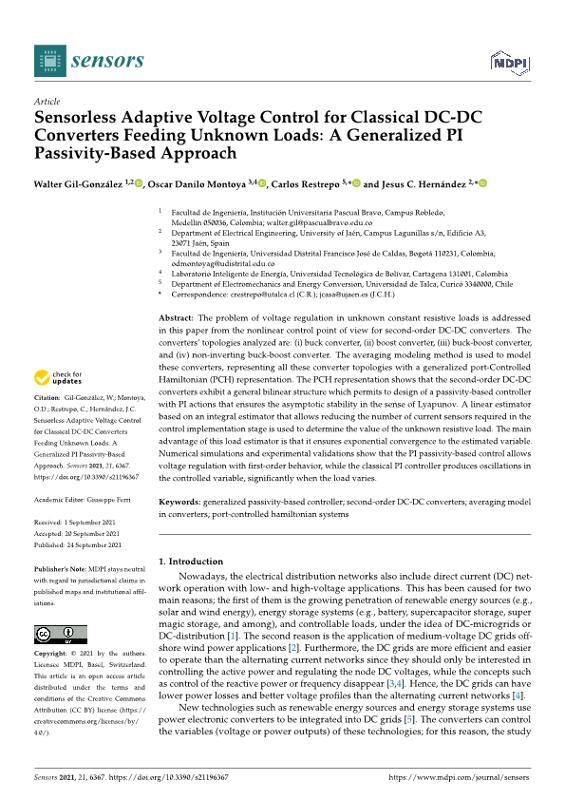Abstract
The problem of voltage regulation in unknown constant resistive loads is addressed in this paper from the nonlinear control point of view for second-order DC-DC converters. The converters’ topologies analyzed are: (i) buck converter, (ii) boost converter, (iii) buck-boost converter, and (iv) non-inverting buck-boost converter. The averaging modeling method is used to model these converters, representing all these converter topologies with a generalized port-Controlled Hamiltonian (PCH) representation. The PCH representation shows that the second-order DC-DC converters exhibit a general bilinear structure which permits to design of a passivity-based controller
with PI actions that ensures the asymptotic stability in the sense of Lyapunov. A linear estimator based on an integral estimator that allows reducing the number of current sensors required in the control implementation stage is used to determine the value of the unknown resistive load. The main advantage of this load estimator is that it ensures exponential convergence to the estimated variable. Numerical simulations and experimental validations show that the PI passivity-based control allows voltage regulation with first-order behavior, while the classical PI controller produces oscillations in the controlled variable, significantly when the load varies














